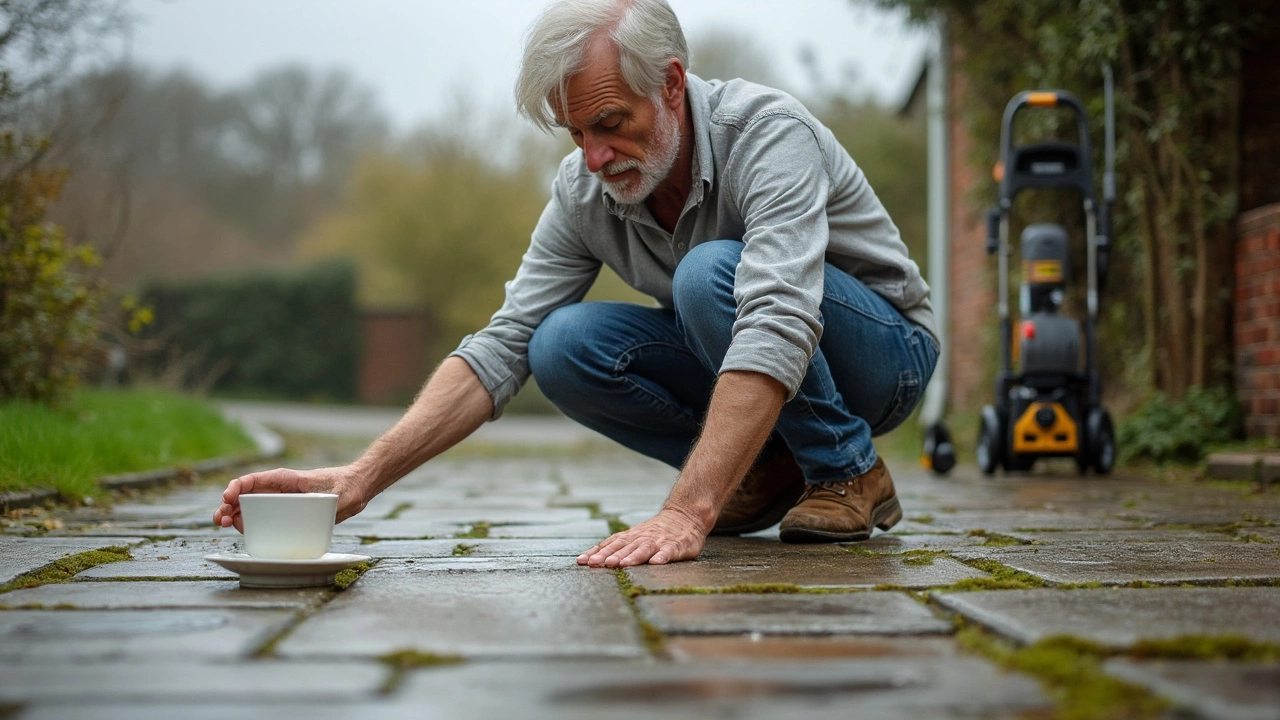Driveway Maintenance: Keep Your Entrance Looking Fresh
Your driveway is the first thing guests see and the place your car lives every day. A well‑kept driveway not only boosts curb appeal, it prevents slips, stops weeds from taking over, and extends the life of the surface. The good news? You don’t need a huge budget or fancy tools to keep it in shape. A few easy habits can make a big difference.
Why Regular Cleaning Matters
Oil stains, leaf litter, and dust act like a blanket on the concrete or asphalt. Over time that blanket turns into stubborn grime that can crack the surface. Removing it early stops the buildup of algae and moss, which are slippery when wet. A clean driveway also reflects sunlight better, keeping it cooler in summer and reducing heat‑related cracking.
Simple DIY Steps for a Spotless Driveway
Start with a good sweep. Use a stiff push broom to get rid of loose debris, leaves, and twigs. For oil spots, sprinkle baking soda or cat litter to absorb the excess, let it sit a few minutes, then sweep it away.
If you have a pressure washer, set it to a medium‑strength setting (around 2,000–2,500 psi). Spray the surface in overlapping passes, moving back‑and‑forth. For a greener option, mix one part white vinegar with three parts water in a spray bottle and apply to stubborn stains before pressure washing. The acid helps break down mineral deposits without harming the concrete.
After washing, let the driveway dry completely. If you notice small cracks, fill them with a concrete repair sealant. Push the sealant in with a putty knife, smooth it out, and wipe away any excess. This prevents water from seeping in and freezing, which can widen the cracks.
Finally, consider a protective sealer once a year. Sealing locks out moisture, reduces staining, and makes future cleaning easier. Choose a breathable sealer so water vapor can escape – that way the surface won’t trap moisture and crack.
Seasonal tips: In autumn, sweep away leaves promptly to avoid mold growth. In winter, clear snow promptly and avoid using rock salt directly on the surface; it can erode the material over time. If you do need to melt ice, opt for a magnesium‑chloride based product, which is gentler on concrete.
When DIY isn’t enough, call professionals. A deep pressure‑wash with hot water can remove ingrained oil and stubborn stains that home equipment can’t tackle. Pros also have industrial‑grade sealants that last longer. A routine professional clean once a year, combined with your regular upkeep, keeps the driveway looking like new for years.
Bottom line: a little routine—sweeping, spot‑cleaning, and occasional sealing—goes a long way. Stick to these steps, watch for early signs of wear, and you’ll save money on costly repairs down the line. Your driveway will stay safe, clean, and inviting without you needing to be a cleaning expert.

Will 3500 PSI Damage Concrete? Pressure Washing Facts You Need to Know
Ever wondered if a 3500 PSI pressure washer could wreck your driveway or patio? This article breaks down what actually happens to concrete under that kind of force, why PSI matters, and what you risk if you grab a powerful washer without a plan. Get practical advice for keeping your concrete safe while tackling tough grime. Real-life tips from homeowners and pros. Avoid costly mistakes with the right know-how.
Read More